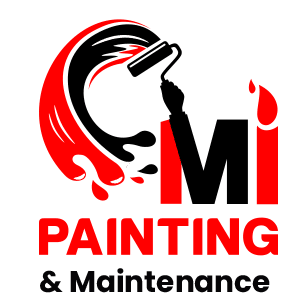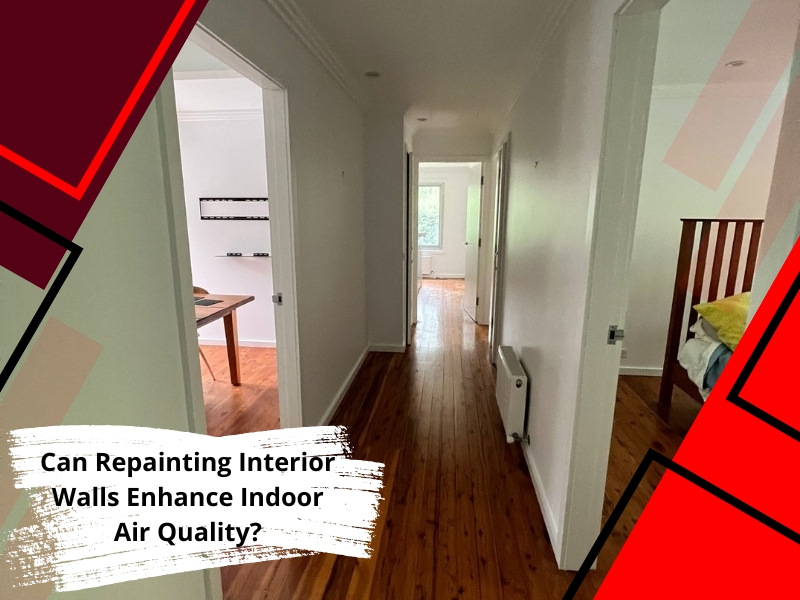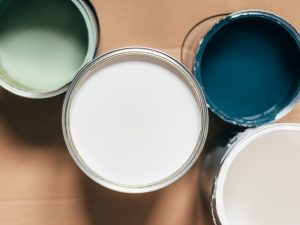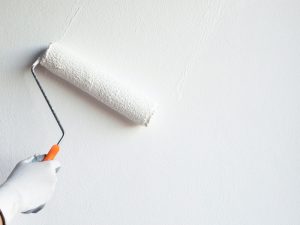If you’re considering a fresh coat of paint for your home or office, you might be wondering about more than just the aesthetics. Can repainting interior walls improve the air quality inside your space? It’s a good question and one that’s becoming more relevant as we all seek healthier living environments. This article explores how repainting can enhance indoor air quality and provides some tips for choosing the right paints to help improve your indoor environment.
How can repainting interior walls impact indoor air quality?
Repainting interior walls has several benefits that go beyond aesthetics. Freshly painted walls can improve indoor air quality in a number of ways. Over time, walls accumulate dust, dirt, and grime, which can trap allergens, bacteria, and other particles. When you repaint, you are refreshing your space, creating a cleaner environment.
Additionally, the type of paint used can impact the air quality. Certain paints, particularly those with low or no volatile organic compounds (VOCs), release fewer harmful chemicals into the air, making it a safer choice for those with respiratory issues or sensitivities.
What types of paint are best for enhancing air quality?
Selecting the right paint can significantly improve indoor air quality. Here are the best options:
- Low-VOC paints: These contain fewer volatile organic compounds, reducing harmful emissions and offering various colours and finishes without compromising air quality.
- Zero-VOC paints: Completely free of VOCs, these are the healthiest choice, especially for homes with children or those with respiratory concerns.
- Natural paints: Made from organic materials like clay and lime, these paints are free from harmful chemicals and VOCs, improving indoor air quality.
- Mould-resistant paints: Formulated to prevent mould and mildew growth, these paints help maintain clean, healthy air in your home.
How do VOCs in paint affect your indoor air quality?
Volatile organic compounds are chemicals found in many paints, especially older or cheaper ones. They evaporate during drying, contributing to indoor air pollution. Common VOCs like formaldehyde and benzene can cause respiratory issues and headaches.
- Short-term effects: Exposure to volatile organic compounds can cause headaches, dizziness, and nausea.
- Long-term effects: Prolonged exposure may contribute to chronic respiratory conditions, allergies, and even more severe health problems.
- How VOCs impact indoor air: As the VOCs evaporate, they can accumulate in enclosed spaces, reducing air quality and making the indoor environment less comfortable and potentially hazardous.
Does repainting interior walls help remove odours?
One of the benefits of repainting your interior walls is its ability to help remove unpleasant odours. Over time, walls can absorb various smells from cooking, pets, smoke, and even mildew. Fresh paint can seal in these odours and create a cleaner-smelling environment. Here’s how:
- Eliminate lingering smells: Paint seals the surfaces of walls, trapping odours inside and preventing them from seeping back into the air.
- Use odour-blocking primers: Some paints have built-in odour-blocking features that neutralise existing smells, leaving your space feeling fresh.
- Healthier air: Fresh paint can contribute to cleaner air and a more pleasant atmosphere by trapping harmful particles and odours.
How do freshly painted walls combat mould and mildew?
Mould and mildew can cause health issues such as allergies and respiratory problems, thriving in damp, dark environments. Freshly painted walls help combat their growth in the following ways:
- Mould-resistant paint: These paints contain antimicrobial agents that prevent mould and mildew growth on painted surfaces, helping to keep indoor air cleaner.
- Sealing existing mould: Before repainting, it’s essential to clean and treat any existing mould. This stops it from growing back and releasing spores into the air, which could negatively affect your indoor air quality. Proper preparation ensures a healthier, cleaner environment.
By choosing the best interior paint formulated to combat moisture and mould, you’re taking an essential step towards improving your home’s air quality.
Can repainting interior walls reduce allergens in your home?
Over time, dust, dirt, and allergens can accumulate on your interior walls, making their way into the air and aggravating allergies. Repainting your walls can help reduce allergens in the following ways:
- Sealing dust and dirt: Fresh paint helps seal in settled dust and grime, preventing allergens from becoming airborne again.
- Easier to clean: Newly painted walls have smoother surfaces, making them easier to clean and maintain.
- Lowering dust levels: The right paint can create a barrier against dust accumulation, helping to keep allergens from settling and keeping the air fresher and more breathable.
How often should you repaint interior walls to maintain air quality?
To maintain optimal indoor air quality, it’s essential to repaint your interior walls periodically. Old paint can release harmful volatile organic compounds (VOCs) into the air. Consider these general guidelines for repainting:
- Every 5 to 7 years: For most homes, repainting every 5 to 7 years helps maintain a healthy indoor environment.
- High-traffic areas: Rooms like kitchens and children’s playrooms may need more frequent touch-ups.
- Exceptional circumstances: If your home has dampness, mould, peeling, or a build-up of allergens, repainting may be necessary sooner.
What precautions should be taken when repainting for better indoor air quality?
To ensure the best possible indoor air quality when repainting, keep these precautions in mind:
- Ventilate the area: Ensure good airflow by opening windows and using fans to help the paint dry quickly and reduce the concentration of fumes.
- Choose low or zero VOC paints: Always select paints with low or no VOCs to prevent harmful chemicals from contaminating the air.
- Use proper equipment: When applying paint, use quality brushes and rollers to minimise spills and splashes. For larger projects, consider using spray painting for a smooth finish.
- Consider professional help: Hiring a professional interior painting service ensures that proper ventilation and safety measures are followed during the project.
Improve your home’s air quality with professional painting services
Repainting your interior walls can significantly enhance your indoor air quality by removing allergens, odours, and harmful chemicals. By choosing the right type of paint and taking proper precautions, you can create a healthier environment for yourself and your family.
If you’re in Sydney and looking for expert painters to help improve your indoor air quality, Mi Painting & Maintenance is here to assist. With over 40 years of experience, we offer professional painting services that enhance your home’s aesthetic while maintaining air quality. From residential to commercial projects, we provide a full range of painting and plastering services, all with a commitment to using high-quality, eco-friendly materials. Reach out to Mi Painting & Maintenance today for a consultation!



